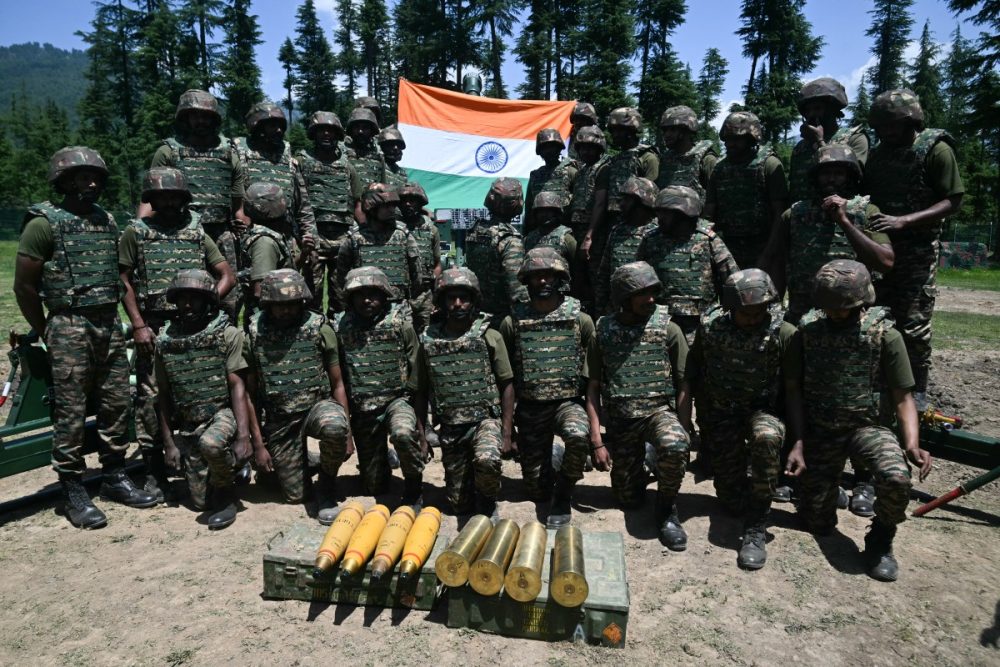Why are Pashtuns in Pakistan agitating against Islamabad? Are the Pashtuns really being funded by Indian RAW and Afghan NDS as Pakistan government has accused?
Pakistan Sidelined For Afghan Peace Talks Between US, Taliban in Doha, Qatar
Miran Shah, the administrative headquarter of my constituency in Pakistan’s western North Waziristan tribal district, once served as the global headquarters of terrorism. Al-Qaeda, the Haqqani network and other militant organizations moved there after being routed out by the U.S. military from neighbouring Afghanistan in late 2001.
As Pakistan turned a blind eye to their revival, we paid a high price for Islamabad’s misguided policies. First, we endured a decade of rule by the Taliban and al-Qaeda. After the military finally moved into North Waziristan in 2014, about 1 million of North Waziristan’s residents were displaced, and our homes and livelihoods were ruined.
Now that we are trying to rebuild our lives after about three years of displacement, the Taliban are being allowed to return. In a secret deal with the military, some of them are expected to carry weapons. We have already seen a sharp spike in targeted assassinations.
Pakistan Army Accuses Pashtun Group Of Receiving Funds From RAW; Hints At Legal Action
But the Pashtun Tahafuz Movement (also known as the Movement for the Protection of Pashtuns, or PTM) is determined to expose this and prevent our people from living under the Taliban’s tyranny again. On Sunday, tens of thousands of the movement’s supporters held a mass protest in Miran Shah to prevent North Waziristan from reverting to dark times.
The residents of North Waziristan, whom I have represented in Parliament since July 2018, are perhaps the worst victims of the games that our military plays. But the more than 200 million Pakistani citizens stand helplessly by as our democracy, Parliament, judiciary and media outlets are manipulated by a powerful security establishment. Its policy of supporting militants and conducting proxy wars over the past four decades has resulted in death, destruction and economic disaster for Pakistan.
My skepticism gives way to optimism, though, when I see the energy and hope that drive my young comrades from the PTM. I am energized and reassured by their resolve to carry out a peaceful campaign to reclaim our dignity, security and rights.
The PTM has emerged as a reaction to the death and destruction unleashed upon the roughly 50 million Pashtuns in Afghanistan and Pakistan for years, and it has remained nonviolent despite facing violence from the state. The PTM is also having an impact across the border in Afghanistan, where fellow Pashtuns recently staged a peace march.
The Pashtuns’ sufferings can be traced back to the Soviet invasion and occupation of the 1980s, which devastated Afghanistan. The Pashtun homeland in Pakistan along the Afghan border became a staging ground for one of the largest asymmetrical conflicts of the 20th century. It radicalized two generations and generated an economy tied to terrorism and extremism.
In the aftermath of 9/11, the Pashtun homeland in Pakistan also became a war zone. Gen. Pervez Musharraf’s military regime and its successors failed to prevent Taliban militants from establishing de facto control in parts of what was known until recently as the Federally Administered Tribal Areas (FATA).
Within Pakistan, the costs of these failures were borne almost entirely by the Pashtuns. Since 2003, militant attacks and military operations have killed tens of thousands of Pashtuns and displaced many more. Nearly 2,000 Pashtun tribal leaders died for resisting the Taliban takeover of FATA.
Global Airlines Suffering Due To Pakistan Airspace Closure: OPSGROUP
The PTM is a reaction to these failures of the state. The movement’s core support comes from millennials who grew up witnessing a contrived war between militants and Pakistan’s military. Their manoeuvres and covert alliances have brought only utter devastation to Pakistan’s roughly 35 million Pashtuns.
At the most basic level, the PTM is campaigning for the right to live. We demand an end to extrajudicial killings and accountability for the perpetrators. We demand an end to enforced disappearances and harassment by security forces. And we want landmines cleared off our civilian areas that have taken the lives and limbs of so many children and adults. It is telling that the state responds to even these simple demands with heartless arrogance.
Every time my bill on enforced disappearances comes up for discussion, Parliament has adjourned. State-backed militants, also known as “the good Taliban,” have killed PTM activists, while the government charges our peaceful comrades under laws meant for terrorists. Our gatherings are discouraged through crackdowns and the creation of official obstacles to obtaining permission for venues. Many of our activists have lost their jobs, while others have had to shut down their businesses. Others have been barred from travelling abroad. As if that were not enough, a brigade of online trolls regularly declares us traitors on social media while inciting violence against us. We also face a blackout from electronic and print media.
Despite all this, our people have awoken. The spring of Pashtun awakening blossoms against all odds. A senior Pakistani official recently tried to persuade me to give up our protests because it angers the generals. He argued that the military must be feared because they speak through weapons. I responded that my generation came of age amid bombs and bullets. We have seen our homes demolished and our elders killed. We have nothing more to lose. Our struggle will continue until we have the right to live, and until we win our right to live, threats to our lives are meaningless.
Originally Published in the WashingtonPost




